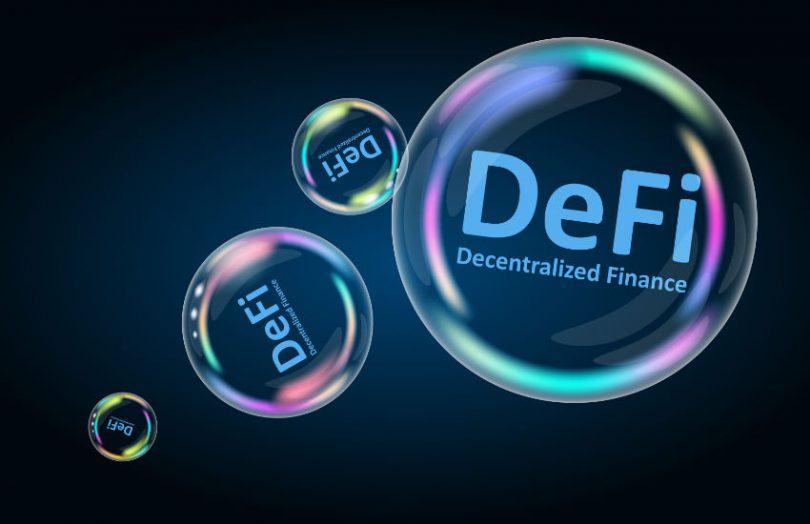In a session at the Point Zero Forum, how to make DeFi safer was discussed by the leaders of JP Morgan’s Onyx blockchain division, SBI Digital Asset Holdings (SBI DAH), and custody firm Metaco, which announced a digital asset custody deal with Citi earlier today. Two of the speakers made self regulatory suggestions in addition to the inevitable regulation.
DeFi: a learning experience or lack of regulation?
The failure of the Terra stablecoin and its associated Luna token, which together lost $44 billion in a week, was a big part of the discussion. Metaco CEO Adrien Treccani, as an entrepeneur, argued that a single failure should not lead to dismissing the technology. Failure is a normal part of innovation.
SBI’s Fernando Luis Vazquez Cao disagreed. He observed that moving fast and breaking things was perhaps acceptable for web 1 or web 2 but not in financial services, where the cost of failure is much higher. There should be no shortcuts. Referring to one of the failures of the dotcom era, he observed, “I really don’t care if something like Pets.com goes down. But if you’re building a platform with billions of dollars in AUM (assets under management), then the stakes are much higher.” He concluded that the focus should be on adequately regulating the service rather than the technology.
JPM’s Onyx CEO Umar Farooq concurred. “Tens of billions of people’s wealth has been lost. Retail people. And if a bank lost $10 billion of retail customer (money) and said, ‘I’m sorry we’re just really moving fast’, the management would be lynched on the streets,” said Farooq. Treccani chimed in that there have been plenty of losses from centralized finance.
Farooq viewed the recent issues in DeFi as a failure to learn from history and previous financial crises, particularly the degree of leverage and the ultimate unwinding.
“Somehow crypto-assets got away with murder, not being regulated,” said Diana Paredes, the CEO of regtech startup Suade Labs. One of the issues Paredes highlighted was the degree of interconnection within the crypto sector and the extreme price correlation between assets. However, Metaco’s Treccani noted the high correlation between tech stock prices.
Potential self regulatory solutions?
The discussion then turned to what should be done about DeFi’s risks, with each of the panelists having different views. A key point of debate was whether smart contracts could continue to be uploaded by anyone or whether there should be a gatekeeper.
Metaco’s Treccani observed that the nature of startups is to push the boundaries and that if Uber had asked for permission first, it would not exist today. He was adamant about the need to retain the freedom for anyone to upload a smart contract, arguing that if deploying a smart required regulatory approval or a license, “I think it would be a disaster. It would hurt innovation massively.” The practicality of blocking the deployment of smart contracts on a public blockchain was not discussed.
The Metaco CEO is interested in having objective third party auditors rather than regulators. These auditors would review smart contracts, not just for code safety but for the potential financial impact. In the case of Terra, he was surprised that people weren’t screaming at the markets “you should not touch that thing,” because he believed its collapse was predictable. That said, several people raised red flags a long time ago, but most didn’t pay attention.
While Treccani mentioned a potential role for accounting auditors, we’d observe that the major ratings agencies are getting involved in the sector, with the likes of Fitch and S&P Global Ratings building teams.
A second aspect will be the inevitable regulation. Treccani said it was important that any law still promotes innovation without creating as much risk as there is today.
SBI’s Vazquez Cao had a nuanced perspective forged through his experience in the early open source movement. He believes self governance is a key requirement and noted that with today’s DeFi, governance is narrow. Only token holders get a vote and regulators have no seat at the table. He argues that DeFi governance needs to be multi stakeholder.
Like Treccani, he also suggested that smart contracts be audited. However, he positioned these auditors as gatekeepers or trust anchors who might vet smart contracts. And the role might potentially be given to the likes of JP Morgan to keep the process lightweight compared to a regulator review.
From an open source perspective, it was when IBM “committed millions of dollars that open source became mainstream,” said Vazquez Cao. “I see something similar happening with DeFi. If we can identify what these trust anchors and gatekeepers should do, this is going to explode. That’s going to be the game-changer for the industry.”







